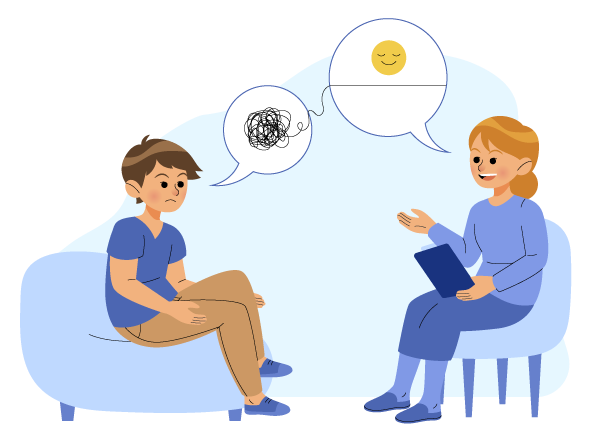Message from Lead School Counsellor
At Premier Academy we believe that mental health and wellbeing is one of our biggest priorities. For us to strive to the best of our ability, we all need to keep mentally healthy. The counseling team facilitates and guides our student wellness programs, ensuring that everyone learns in a safe, healthy, and supportive environment.
School counselors advocate, mediate, coordinate, consult, lead and collaborate with teachers, administrators and parents to ensure students are receiving the needed support.
As a school we encourage parental involvement and we want you to know that we respect your concerns. Parents may contact a school counselor to help their children with a variety of issues, such as academic achievement; new school registration, orientation and transition; test interpretation; special needs; student crisis situations; family transitions; and higher education, but to mention a few.
Please do not hesitate to get in touch – counsellor@premier-sri.ac.ke

WHO ARE SCHOOL COUNSELLORS?
School Counsellors have unique qualifications and skills to address students’ challenges right from PlayGroup to Year 13. They work closely with school staff and other agencies. All Counsellors work within a registered professional body and recognized code of ethics such as the British Association of Counsellors and Psychotherapists (BACP), American Psychological Association (APA), American School Counsellors Association (ASCA), International School Counsellor Association (ISCA), Kenya Psychological Association (KPSYA) and/or Kenya Counselling and Psychological Association (KCPA).
HOW CAN SCHOOL COUNSELLORS HELP?
Counsellors usually provide short-term counselling, up to six (6) sessions. The length of the sessions may vary depending on the issues being addressed. With younger children the sessions may involve play materials. What is discussed during the sessions is confidential, moreover the child/client is informed by the Counsellor that he/she may consult with other professionals or agencies if they feel the child/client is at risk or is in danger.
In certain instances, the School Counsellor, with the parent’s/client’s knowledge and consent, may refer the child/client to other agencies or professionals (external support) for in depth and further support.
HOW DOES MY SON / DAUGHTER SEE THE SCHOOL COUNSELLOR?
Counselling is a voluntary process. Your child may seek the School Counsellor independently, or a teacher/ parent may recommend it.
WHAT ISSUES CAN SCHOOL COUNSELLORS HELP WITH?
There are a variety of challenges the School Counsellor can offer support in, for example, peer pressure, friendships, teasing and bullying, exam and academic pressure, family pressure, family relations; separation and divorce, change and transition, illness; terminal illnesses, loss and grief of a loved one, body image, study habits and so on. Young people have to cope with adolescence and the hormonal and physical changes that accompany it.
Providing support to the child helps them learn how to deal with the various challenges, they feel better equipped and learn healthy ways of coping at home and at school.
HOW CAN A PARENT/CAREGIVER SUPPORT THE COUNSELLING PROCESS?
Counselling is a normal and useful activity geared towards providing emotional, social and psychological support to your child. Showing interest when they want to talk without pushing or forcing them to talk about it. If they wish not to discuss the issue, give it time by creating a conducive environment for conversation. Counselling is a process, it takes time and the child/client must make a conscious effort to make the necessary changes they need.
Counselling can have benefits and risks. Since therapy often involves discussing unpleasant aspects of one’s life, your child may experience uncomfortable feelings like sadness, guilt, anger, frustration, loneliness and helplessness. On the other hand, counselling has been shown to have benefits for individuals who go through it. Therapy can lead to better relationships, solutions to specific problems, significant reductions in feelings of distress and improved self-esteem; but there is no guarantee that it will work since one has to make a conscious effort to make the changes they need for counselling to be effective. Counselling is a personal exploration and may lead to major changes in life perspective and decision. Together the parent, the child and the School Counsellor will work to achieve the best possible results from him or her.
CONFIDENTIALITY
One of our ethical and legal obligations involves informing students of the purposes, goals, techniques and rules of procedure under which they may receive counseling. Disclosure includes informed consent and clarification of the limits of confidentiality.
Another requirement of School Counsellors is keeping information confidential unless legal requirements demand that confidential information be revealed or a breach is required to prevent serious and foreseeable harm to the student. Serious and foreseeable harm is different for each minor in schools and is determined by students’ developmental and chronological age, the setting, parental rights and the nature of the harm. School Counsellors consult with appropriate professionals when in doubt as to the validity of an exception.
Therefore, in the event of a medical, psychiatric or psychological emergency (i.e. suicidality or signs of self-injury), the school counsellor together with the school nurse will contact a family member or relevant persons in order to facilitate the helping process and provide adequate support to the student.